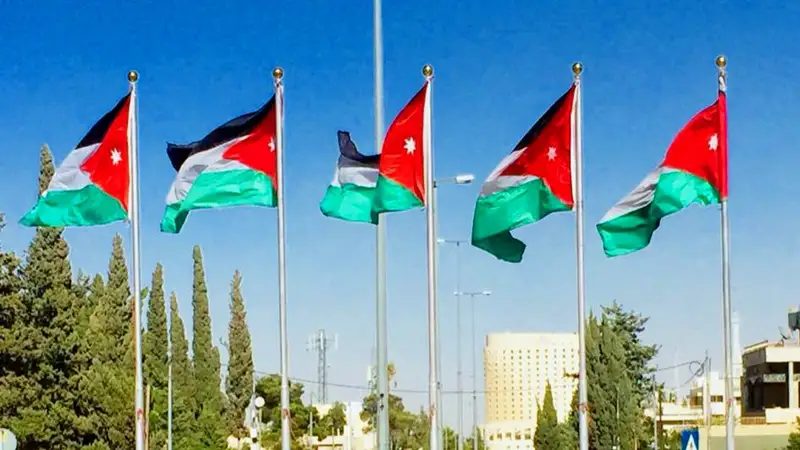Jordan, Syria advance cooperation in energy, water sectors amid renewed dialogue
Minister of Energy and Mineral Resources Saleh Kharabsheh on Wednesday highlighted the importance of strengthening relations between Jordan and Syria, particularly in the fields of energy and water, to serve the mutual interests of both nations, Petra reports.

In a joint statement following extensive meetings with his Syrian counterpart, Mohammad Bashir, and attended by Minister of Water and Irrigation Raed Abu Saud, Kharabsheh said discussions focused on enhancing cooperation in the supply of natural gas from Jordan to Syria for electricity generation, an arrangement that has been in place for several years and is slated for expansion.
Kharabsheh noted the possibility of tripartite cooperation involving Jordan, Qatar, and Egypt in the energy sector. The meetings also addressed the electricity exchange project between Jordan and Syria, following up on a recent visit to Damascus, with discussions centering on increasing the capacity of the existing interconnection line, which is currently undergoing rehabilitation on the Syrian side.
He added that coordination is underway with the Arab Fund for Economic and Social Development to finance a feasibility study related to the electricity interconnection, and a joint technical team has been formed to oversee this initiative.
The talks further explored opportunities in electricity distribution, oil marketing, and leveraging Jordan’s advanced infrastructure for the storage and monitoring of petroleum derivatives through state-owned enterprises such as the Petroleum Monitoring Logistics Company and the Jordan Petroleum Refinery Company.
Kharabsheh affirmed that Jordan, guided by royal directives, is placing its technical and logistical capabilities at Syria’s disposal. On renewable energy, he underlined Jordan’s leadership in this sector, announcing upcoming meetings between private sector companies from both countries to explore collaborative ventures and joint investments.
Meanwhile, Abu Saud described the resumption of dialogue on water issues with Syria as a new chapter following years of stagnation. He explained that while the bilateral water agreement signed in 2005 remains unimplemented, both sides agreed to convene the first meeting of the Jordanian-Syrian Joint Technical Committee on July 8 to discuss the Yarmouk River and water allocations.
Abu Saud presented an official letter to his Syrian counterpart concerning the 3/9/7/8 agreement, which contains provisions allowing for amendments. He elaborated on Jordan’s perspective regarding proposed changes first raised in 2021.
Expressing optimism over Syria’s stance, Abu Saud noted positive developments such as the Syrian government’s drilling of wells in the southern Dhara region, which has eased pressures on groundwater resources in northern Jordan, particularly following a favorable rainy season. He said this reflects a spirit of cooperation and Syria’s commitment to supporting Jordan in addressing water challenges.
He added that the Syrian side is well aware of the complexities surrounding the Zaidi Basin, Jordan River, and Ramtha Basin, and that these topics will be discussed in detail during upcoming meetings.
For his part, Bashir confirmed that the World Bank has provided a grant to rehabilitate the electricity interconnection line on the Syrian side. He also announced an agreement to increase the volume of natural gas supplied from Jordan to Syria.
He highlighted the formation of joint technical committees to examine bilateral water agreements, including those related to the Yarmouk Basin.
Bashir emphasized that the day’s discussions included meetings with Jordanian renewable energy firms to explore opportunities for transferring Jordan’s expertise to Syria. Separate sessions will also be held with Jordanian companies interested in investing in the Syrian market.
Officials on both sides underscored that these meetings signal a new beginning toward a sustainable partnership rooted in the exchange of expertise and shared interests, with both countries committed to further coordination and joint initiatives in the coming period.
As reported previously, Jordan's exports to European Union (EU) member states rose by 14.4% in the first four months of 2025, underscoring the Kingdom’s ongoing efforts to diversify its trade portfolio and enhance market access in advanced economies.
